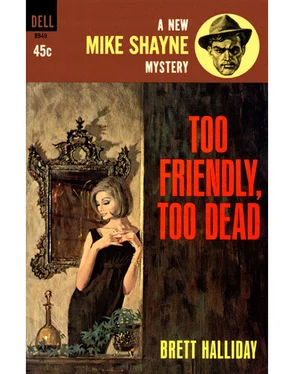Dan Fesperman - The Double Game
Здесь есть возможность читать онлайн «Dan Fesperman - The Double Game» весь текст электронной книги совершенно бесплатно (целиком полную версию без сокращений). В некоторых случаях можно слушать аудио, скачать через торрент в формате fb2 и присутствует краткое содержание. Жанр: Шпионский детектив, на английском языке. Описание произведения, (предисловие) а так же отзывы посетителей доступны на портале библиотеки ЛибКат.
- Название:The Double Game
- Автор:
- Жанр:
- Год:неизвестен
- ISBN:нет данных
- Рейтинг книги:3 / 5. Голосов: 1
-
Избранное:Добавить в избранное
- Отзывы:
-
Ваша оценка:
- 60
- 1
- 2
- 3
- 4
- 5
The Double Game: краткое содержание, описание и аннотация
Предлагаем к чтению аннотацию, описание, краткое содержание или предисловие (зависит от того, что написал сам автор книги «The Double Game»). Если вы не нашли необходимую информацию о книге — напишите в комментариях, мы постараемся отыскать её.
The Double Game — читать онлайн бесплатно полную книгу (весь текст) целиком
Ниже представлен текст книги, разбитый по страницам. Система сохранения места последней прочитанной страницы, позволяет с удобством читать онлайн бесплатно книгу «The Double Game», без необходимости каждый раз заново искать на чём Вы остановились. Поставьте закладку, и сможете в любой момент перейти на страницу, на которой закончили чтение.
Интервал:
Закладка:
Dan Fesperman
The Double Game
1
The Great Man himself was waiting for me on the phone. I say that without irony. In those days Edwin Lemaster was my hero, accomplished and unblemished, the very sort of fellow I aspired to be but never became. Even my wife, April, sensed the call’s solemn importance, although she’d never liked his books.
“Genre fiction,” she always sneered. “Spies and secrets, lies and betrayal, blah blah blah.”
“You mean like life?” I’d counter, little knowing we were touching on the dynamics of our coming failure.
Yet on that long-ago sunny morning she smiled in excitement and stretched the phone cord to its limit, as if it were a lifeline that might pull me to safety. I grabbed it.
It was June of 1984, Orwell’s year of reckoning. The Cold War, after a brief thaw, had safely returned to subzero, and the Berlin Wall remained rock solid. I was twenty-seven, a Washington journalist on the make, poised at roughly the halfway point of my life up to now. Opening my mouth to speak, I felt like a flustered fan who had finally reached the head of the autograph line.
“Uh, Mr. Lemaster? This is Bill Cage.”
“Bill, a pleasure. And call me Ed. My assistant Lenore forwarded your request. As you know, I don’t usually give interviews, but your letter was quite convincing.”
Of course it was. I’d spent hours on it, agonizing over every word. In my latter-day career as a PR flack, nothing I’ve written has ever matched its persuasive sincerity. Then again, I am no longer paid to be sincere.
“I’ll be coming down from Maine for the university lecture anyway,” Lemaster continued, “so why don’t we give it a try?”
I could barely draw breath to answer.
Why such excitement over a mere scribbler? I should explain. Not only was Lemaster the world’s premier espionage novelist, he’d also been a spy for sixteen years at the height of the Cold War, back when spying was a glamorous profession. “Our Le Carre,” the American critics called him, although to my mind Le Carre was “Their Lemaster.”
But for me the appeal went further, and was deeply personal. Having grown up as a Foreign Service brat, I had come of age in the very capitals where Lemaster set his plots, at the very moment in history when they were unfolding. In those days, to walk the night streets of Berlin, of Prague, of Vienna, of Budapest, was to imagine that mysterious and exciting events were occurring just around the corner. And sometimes they were.
My father, also a fan, first put a Lemaster novel in my hands when I was twelve, as an antidote to a gloomy Saturday in Prague in 1968. Within days I was pillaging his shelves for the equally timely glories of Le Carre, Deighton, and McCarry. Eventually I turned to earlier classics by Maugham, Buchan, Ambler, and Greene. I even read the 1903 Erskine Childers book that supposedly gave birth to the modern spy novel, The Riddle of the Sands, its pages haunted by the knowledge that the author had eventually been hanged as a spy. My father had them all, a painstakingly assembled collection of more than two hundred espionage first editions, most of them signed by the author.
Whenever we moved-and in the diplomatic corps that happened about every three years-the books were my back-door passage to our new home, with the characters as my escorts. At a moment in history when other American boys were memorizing batting averages and home run totals, I was steeping myself in the lore of fictional spies. They were my Mays, Mantle, and Maris, and I aspired to emulate them. To be a spy was to survive by your wits in a dangerous foreign landscape, to seek to know everything about others while revealing nothing of yourself-an arrested adolescence in which you merited your country’s highest trust even as you traded in its deepest duplicity.
And the writer I always returned to with the greatest anticipation was Lemaster, who seemed more willing than the rest to take me into his confidence. He declassified the world I lived in, elegantly parting the curtains in all their varying shades of gray. So perhaps now you can understand why his promise of an interview left me momentarily at a loss for words.
“Bill?” he prompted. “Are you there?”
“Great,” I finally managed. “That would be… great. ”
“Chancellor Stewart has kindly offered the use of his conference room. Shall we say four o’clock?”
“Perfect.” At least I’d moved on from “great.”
“In the meantime, Lenore will send you an advance copy of my latest. See you next week.”
“Wouldn’t miss it for the world.”
Wouldn’t miss it for the world? Had I actually said something so trite? I blushed as I hung up, and for the next hour I half expected Lenore to call back to cancel. Then, determined to make the most of the opportunity, I began finding out all I could about Lemaster’s life and times.
The basics were already known to me: He was divorced, childless, eldest son of a Wall Street lawyer. Groton ‘51. Yale ‘55. Then two years as a Rhodes Scholar at Oxford, where he became an incurable Anglophile before joining the CIA in 1957. Served throughout Europe. Began writing novels while still an Agency employee. Left the CIA in ’73, a month after his third book became a bestseller.
I figured there would be plenty more. But in those days before Google and YouTube it was far easier to maintain a low profile, and that’s what Lemaster had done. I checked the clip file at the Post, the Lexis-Nexis database of publications from around the world, Who’s Who, the Reader’s Guide to Periodical Literature. My search turned up loads of book reviews, but only a few profiles, and those were skeletal. Only Time magazine and London’s Guardian had interviewed him at length, and even their stories were mostly about his books and characters. When Time asked about his career in spying, Lemaster was charmingly dismissive.
“Oh, I was quite unimportant. A cog in the machine, easily replaced. Anything I picked up for the novels came mostly from hearing what other fellows were talking about, the ones who were doing the interesting stuff.”
Frustrated, I retraced my steps, this time combing the material like an old-fashioned Kremlinologist, alert for significance in the backwash of minor detail.
He hunted, but only for birds, never mammals. Fished, but only with a fly rod and he tied his own lures. Liked Bordeaux reds, Alsatian whites. A Red Sox fan who had never been to Fenway, yet had twice been to Yankee Stadium (and if that isn’t the behavior of a natural-born spy, what is?). His thesis at Oxford was on the theme of courtly love in medieval poetry.
I looked up “courtly love.” It was all about a knight’s idealized, secretive devotion to a specially selected woman, never his wife, although possibly someone else’s. He pledged eternal loyalty even if she never loved him back, and wrote her letters under a code name.
It sounded an awful lot like espionage.
At the appointed hour I appeared at the chancellor’s oaken chambers with a fresh notebook and a microcassette recorder. Folded in my pocket was a list of forty questions, winnowed from fifty-seven the night before. I wore a jacket and tie, which in those days occurred about as often as sightings of Halley’s Comet.
Chancellor Stewart, who turned out to be a school chum of Lemaster’s, handled the introductions. His secretary kindly tried not to smile as I wiped a sweaty palm on my corduroys before shaking hands.
Lemaster was taller than I expected, even a bit imposing. But the craggy nose, the lined face, and the stray forelock, curling toward his brow like a comma, were exactly as advertised on his dust jackets. Both he and the chancellor wore tweeds. Stewart escorted us into the conference room, then departed.
Читать дальшеИнтервал:
Закладка:
Похожие книги на «The Double Game»
Представляем Вашему вниманию похожие книги на «The Double Game» списком для выбора. Мы отобрали схожую по названию и смыслу литературу в надежде предоставить читателям больше вариантов отыскать новые, интересные, ещё непрочитанные произведения.
Обсуждение, отзывы о книге «The Double Game» и просто собственные мнения читателей. Оставьте ваши комментарии, напишите, что Вы думаете о произведении, его смысле или главных героях. Укажите что конкретно понравилось, а что нет, и почему Вы так считаете.












